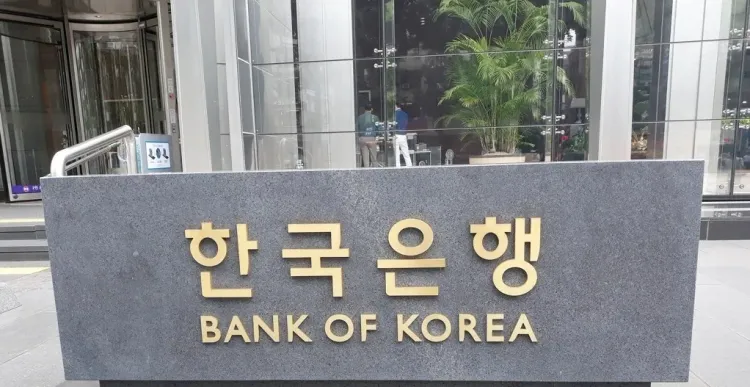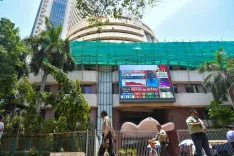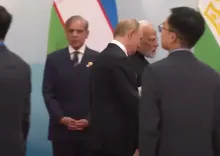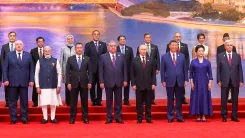How Will Uncertain US Trade Policy Impact South Korea's Growth?

Synopsis
Key Takeaways
- Trade policy uncertainty from the U.S. could reduce South Korea's growth by 0.13 pp this year.
- An agreement was made for a 15% tariff instead of 25% in exchange for a $350 billion investment.
- Ongoing uncertainties might lead to further declines in growth in the coming years.
- Private consumption is expected to drop due to precautionary savings.
- Close consultations with the U.S. are necessary to mitigate risks.
Seoul, Sep 1 (NationPress) The current uncertainty regarding the trade policy of the United States is projected to lower South Korea's economic growth rate by approximately 0.13 percentage points this year, as reported by the central bank on Monday.
In late July, Seoul and Washington finalized a significant agreement which involved the U.S. reducing the tariff on South Korea to 15 percent from the initially proposed 25 percent, in return for a commitment of $350 billion in investments in the U.S., according to the Yonhap news agency.
Despite this agreement, the ongoing unpredictability surrounding trade policies under the Trump administration could severely impact the South Korean economy, with potential decreases in economic growth of up to 0.13 percentage points in 2025 and 0.16 percentage points in the following year, as per the analysis from the Bank of Korea (BOK).
The anticipated economic slowdown is primarily linked to a significant drop in exports and investments, as increased uncertainty discourages companies from pursuing foreign market opportunities or making substantial investments.
While exports increased in the first half of the year due to preemptive actions in anticipation of potential tariff increases, they are expected to fall in the latter half because of diminished U.S. demand for imports.
Moreover, private consumption is projected to decrease as households are likely to adopt a more cautious approach to savings in light of economic uncertainties, noted the BOK.
If tariff negotiations had not reached a conclusion and uncertainty remained into next year, the economic ramifications could have been greater, potentially leading to a decline in growth by 0.17 percentage points in 2025 and 0.27 percentage points in 2026.
"Whether tariffs are imposed or not, the elevated uncertainty in U.S. trade policy following the initiation of Trump's second term could adversely affect the economy," stated a BOK official.
"It is crucial to maintain ongoing consultations with the U.S. to avoid a resurgence of trade policy uncertainty," he added.
In the most recent forecast published last week, the BOK projected the local economy to grow by 0.9 percent this year and 1.6 percent in 2026.









